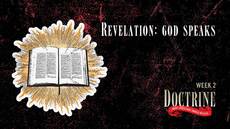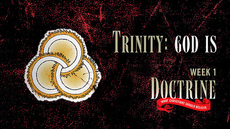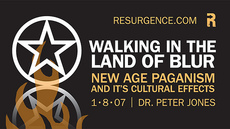As part of the Religion Saves and Nine Other Misconceptions sermon series, I answered Question #1 on March 2: "Do you believe that the Scripture not only regulates our theology but also our methodology? In other words, do you believe in the regulative principle? If so, to what degree? If not, why not?"I define worship as glorifying God the Father through the mediatorship of God the Son by the indwelling power of God the Spirit. Worship includes both adoration and action according to Hebrews 13:15-16: "Through him then let us continually offer up a sacrifice of praise to God, that is, the fruit of lips that acknowledge his name. Do not neglect to do good and to share what you have, for such sacrifices are pleasing to God." Our worship also includes what we do as Christians when we scatter for witness (1 Cor. 10:31) and gather for worship (Heb. 10:24-25). On this point my friend Dr. D. A. Carson has said "we cannot imagine that the church gathers for worship on Sunday morning if by this we mean that we then engage in something that we have not been engaging in the rest of the week. New covenant worship terminology prescribes constant ‘worship'" (Worship by the Book 2002, 24). Regarding worship forms, the Bible is clear that God is to be worshiped in ways that He deems acceptable. This explains why God judges those who seek to worship Him with either sinful forms externally (e.g., Lev. 10:1-2; Ezek. 8-9) and sinful hearts internally (e.g., Gen. 4; Isa. 1:11-17; Jer. 7:9-10; Mic. 6:6-8). There are certain elements that Scripture prescribes for gathered corporate worship services as the church:
- Preaching (2 Tim. 4:2)
- Lord's Table (1 Cor. 11:17-34)
- Prayer (1 Tim. 2:1)
- Reading Scripture (1 Tim. 4:13)
- Financial giving (2 Cor. 8-9)
- Singing and music (Col. 3:16)
- Corporate church worship services must include all the elements that Scripture commands and may include others so long as they are not prohibited by Scripture.
- Advocates of the Normative- Martin Luther, Archbishop Thomas Cranmer, the Book of Common Prayer, Anglican Richard Hooker, Catholics, Lutherans, Anglicans, Methodists
- Corporate church worship services must include all the elements that Scripture commands or are a good and necessary implication of a biblical text and nothing more.
- Advocates of Regulative - John Calvin, Scottish Presbyterians, Puritans, the Westminster Confession, Presbyterians, Reformed
- Regarding worship as a lifestyle, Unceasing Worship by Harold M. Best is amazing.
- Regarding the theology of corporate worship, Worship by the Book, edited by D. A. Carson with contributions by Mark Ashton, R. Kent Hughes, and Timothy J. Keller, is very helpful from the Reformed perspective.
- Worship in Spirit and Truth by John M. Frame is a great book that deals with the Regulative Principle in a thoughtful and biblical way.
- "A Fresh Look at the Regulative Principle" by John M. Frame
- "Some Questions about the Regulative Principle" by John M. Frame
- "The Regulative Principle" by Dr. Richard L. Pratt Jr.



